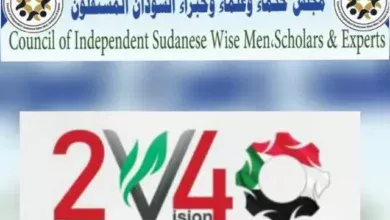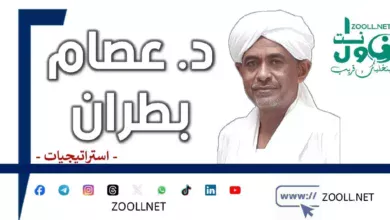Abdul Majid Abdul Hamid.. The Latest on Slavery (6) – A Whale's Spine – ✍️ Yasser Muhammad Mahmoud Al-Bishr

* Dr. Al-Tayeb Ahmed Haroun, author of the book Al-Jazeera, Aba Whispers of History, continues his narrative, stating that the reason for the working conditions and the difference in output on Al-Jazeera was quarrels between the group of workers (the migrants) who consider themselves better because they see their work in the service of (Sayyid) Abd al-Rahman and his projects as an act of worship by which they draw closer to God and (the Ansar) who see them as such. apart from that, that is, the immigrant workers are oppressed and do not feel their injustice. Regarding these relations of production, Azraq says that perhaps the tools of material analysis are incapable of understanding the relations of production that the (Circle) has adopted at this stage, because (the Circle of the Mahdi) has not adopted this type of feudalism that was prevalent in Europe in the Middle Ages, p. (78) and so that the workers do not begin to doubt that they are being oppressed and oppressed. so that the interests of the economic department are not affected, (Sayyid) Abdul Rahman tried to reconcile them by describing the production relations between the department and its workers as based on patriarchal foundations (and not on forced labor). the Ansar and the workers is (that the Ansari is like my son whom I married and whom I have settled his livelihood and who is next to me in the house and shares his food with me, and the worker is like my son whom I have not married and who has not settled his livelihood and who lives with me in the house and our efforts and expenses are the same), meaning that it is based on patriarchal foundations and not on feudal exploitation as is the case (109)*.
*The master knew how to get out of the traps. The above-mentioned forced labor system continued until 1935, when the workers of the department went on strike, demanding a clear share of their production. Their demands were partially met, so that each worker received a share. pound of bread and seventeen and a half piastres. After continued demands, the salary increased to (75) piastres per month after four years of demands, and it was frozen for a period of (16) years until 1956, when it was frozen. was replaced by the partnership system. It should be noted that the change in benefits did not include working women. For comparison, the worker's daily allowance in 1940 was eight piastres per day (see Siddiq Ambda 1989 (The Absurdity of). free entry – University of Khartoum) Accordingly, the worker's monthly entitlement is (2.4) Egyptian pounds, which means that (Mr.) Abdul Rahman was paying the workers after the strike about 7% of the wages of people like them elsewhere, even after raising it to (75) cents and freezing it for a period of (16) years, because it was about 30% of the wages of people like them, noting that the farmers of the Al-Jazeera project, who had only their hands, shared 40% of the profits. As a result of these conditions, several strikes took place, which (Mr.) Abdel Rahman contained with his prudence and intelligence*.
*But despite this, a number of workers and some young engineers left Al-Jazeera Aba and the department, including Haroun Hamed, who joined the Atbara Industrial School and graduated in 1933. After graduating, Haroun joined the department with a salary of (thirty) piastres per month and a pound of bread per day, while his counterparts in Atbara started with a salary of (two pounds), which increased to six pounds after passing the trial period after four years, Harun's salary in the Mahdi Department reached (75) piastres per month (the same as the salary of the worker who did not untie the line), but he resigned from the department and went to Kosti and joined another job with a total salary of (seven). and a half, meaning that the department gave him about ten percent (10%) of the salary of his colleagues elsewhere. It is worth mentioning that the list of the conditions of service of the agricultural company (Al-Mahdi department) shows that the employees of the company were given attractive and distinct conditions of service compared to other companies at that time (see Azraq, p. 72), the question that arises is why, as was the case, Harun was not given a lucrative salary. Perhaps the reason was that (Sayyid) Abd al-Rahman did not want the application of distinct conditions to people like Harun to lead him and others to become a model for the other sons of the Ansar, thus weakening the control over the Ansar and their sons, and God knows best*.
*In 1922, (Sayyid) Abdul Rahman thought to benefit from the children of young workers, aged (7 to 16), in agricultural work in his projects. They were gathered every morning in a specific place and then moved to participate in the work. agricultural operations. They were called (the children of the regime), and the organization of the children developed into camps with the aim of training them to follow the signal and obey the orders of (Sayyid) Abd al-Rahman, camps were established. for them to reside permanently, separated from their families, with their consent, first near the cave (of al-Mahdi) on the banks of the White Nile in 1931. The following year, the department moved the camp to the land of al-Shifa, and Sheikh Yaqoub Abu Nafisa was in charge of it. The children's daily schedule consisted of working on the farms from sunrise to noon, and in the evening they went into isolation, and this schedule continued until the Boys of the Regime camp stopped in 1947. The writer says that the Boys of the Regime camp is the incubator that trains farmers and technicians in the trades that the department needs in the shoemaking and saddlery workshops and textile works, p.
Half a fork
*Among the external participations of the children of the regime was their participation in the cotton foundling, when (150) of them were transferred to the Qandal project in the Blue Nile in 1931, after which they were returned to their camp in Aba They also participated in the work of the department in the Um Dom agricultural project, among other works.*
A quarter of a fork
*History does not repeat itself, but it is a station that must be stopped to strengthen the present and build a healthy homeland whose slogan is that the boy is the one who says: “Here I am” and does not say: “That was my father.”
The article has been published Abdul Majid Abdul Hamid.. The Latest on Slavery (6) – A Whale's Spine – ✍️ Yasser Muhammad Mahmoud Al-Bishr First on Zoll net.





